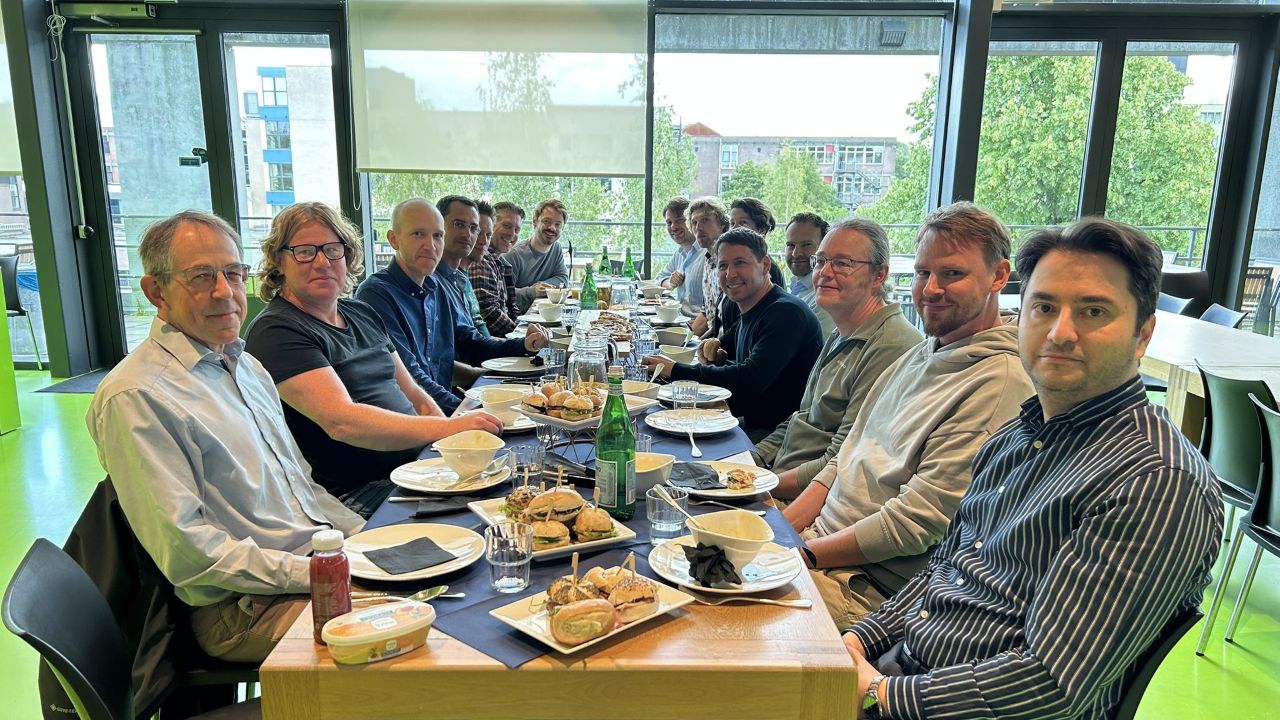AMOLF, CWI, and DIFFER launch HELIOS project with NWO-I funding
An AMOLF collaboration with CWI and DIFFER has received funding from NWO-I to launch a joint project: HELIOS: AI-guided materials discovery facility for solar energy materials. On Friday, May 23rd, representatives from the three institutes gathered for the kick-off meeting to discuss the roadmap toward developing a highly efficient multilayered halide perovskite solar cell.

NWO-I funds proposals such as HELIOS to strengthen connections between its institutes and to support research that aligns with and advances each institute’s mission.
In the HELIOS project, AMOLF will contribute its expertise in fundamental research on functional materials. CWI will lead the AI efforts, while DIFFER brings in strong systems engineering, machine learning, and data management capabilities.
Project leader Erik Garnett notes that the project faces a variety of practical challenges:
“A regular solar cell has five layers, but we’re aiming for twenty layers that interact perfectly with each other.” He adds that these layers must not only function well individually but also integrate seamlessly. “For example, processing for one layer may affect the layer beneath it.” AMOLF researchers will take on this challenge, along with others that arise during the development of the solar cell.”
The HELIOS solar cell material will operate as a learning system. CWI researchers will implement AI technology to guide experimental choices. Coupled with the researchers’ scientific intuition, this approach is expected to accelerate progress significantly.
The project also involves a substantial number of AMOLF support staff. Erik highlights the contributions from several departments:
- ICT is involved due to the large volume of data generated;
- Electrical engineering expertise is required to build custom complex electronic interfaces;
- The design department is responsible for the mechanical design of robotic interfaces;
- The precision manufacturing department will make custom parts for automated interfaces;
- Software engineers will to build and maintain automated systems.
The total budget for HELIOS is € 3.710.000 and the project is expected to run for 5 years.
Do you want to find out more about sustainable energy materials? Then, have a look at our Sustainable Energy Materials webpage.


